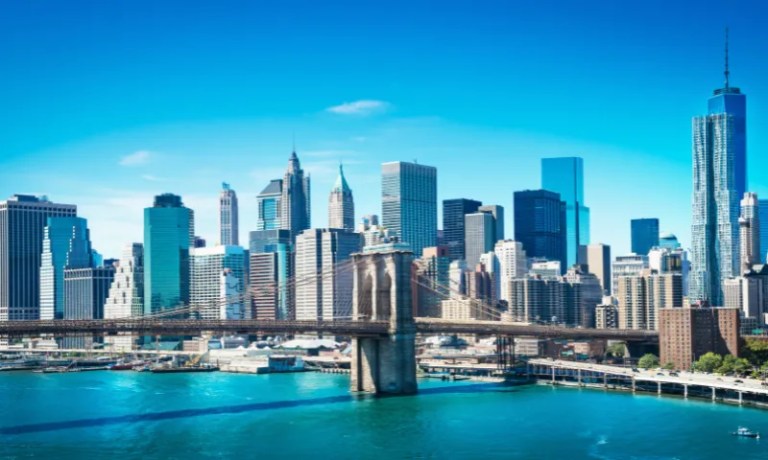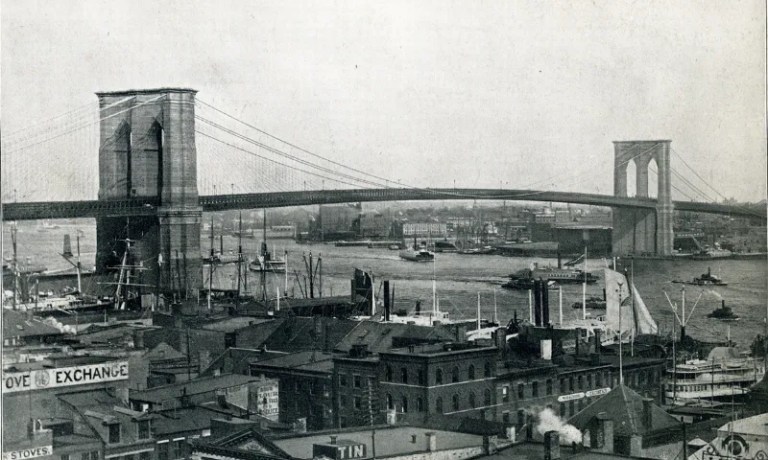The real cost of bottled water.
See how our bottleless water coolers compare.
Areas served
Offer a more sustainable solution for cleaner, better-tasting water on demand.
Fast, efficient, and reliable ice and water machines with advanced filtration.
Bottomless bubbles with built-in filtration for your modern workplace.
Better water makes better coffee. Give your people great-tasting coffee from best-in-class brewers.


Today, the New York City water system originates from 19 protected reservoirs and three controlled lakes in upstate New York, providing 1.2 billion gallons of drinking water to roughly 9.3 million residents. According to the recent New York City Water Quality report, tap water well exceeds federal and state regulations. In fact, New York City has a reputation for having the finest tap water in the world. The Catskill/Delaware UV Disinfection Facility disinfects water with chlorine and ultraviolet (UV) light. The Croton water supply is filtered by the Croton Water Filtration Plant, located underground in the Bronx.
However, like many older cities, New York City tap water travels through hundreds of miles of older cast iron pipes, prone to corrosion and biofilm contamination. Clusters of deterioration and bacteria travel with water to faucets, resulting in water cloudiness, red water, and off-taste and odor. New York City also has the unique practice of storing water in rooftop tanks. As the city grew in the late 1800s, water mains could not keep up with requirements of the ever-taller buildings, and city planners turned to rooftop water towers.
The municipal government regulates New York City water infrastructure. However, water towers are under the supervision of the building owner and are often not cleaned, inspected, or tested per building and health codes. Water in these towers have been found to harbor E. coli, coliform, viruses, bacteria, and parasites.
Almost since its inception, New York City has used a complex system of aqueducts to transport water from outside the city to its residents. Prior to the 1830s, the city distributed water through hollow logs laid in the streets, leaving the water exposed to dirt, grime, and contaminants. In the 1830s, the city switched to cast iron pipes to bring in water from the Croton River.
The Old Croton Aqueduct was built in the 1830s to provide water to over 60,000 residents. By the early 1900s, New York City residents needed more water, and city officials turned to the Catskill Mountain region. After construction of the Catskill Aqueduct completed in 1927, city officials set right out on the development of the Delaware Aqueduct, which pulls from the headwaters and tributaries of the Delaware River in New York State.
See how our bottleless water coolers compare.
Talk to an New York City Culligan Quench water expert to find the best water solution for your space.
Backed by 85 years of Culligan expertise, Culligan Quench has focused exclusively on providing businesses with the highest quality filtered water. This commitment to doing one thing well has made us the trusted water authority for over 75% of the Fortune 500. We offer the best bottleless water coolers, ice machines, sparkling water dispensers, and coffee brewers to fit any workplace. No matter your location, company size, or industry, we have a filtered water solution that is right for you
Play videoProudly providing businesses with clean, filtered drinking water to the greater New York City Metro Area.
| Mon: | 8 AM – 8PM |
| Tues: | 8 AM – 8PM |
| Wed: | 8 AM – 8PM |
| Thur: | 8 AM – 8PM |
| Fri: | 8 AM – 8PM |
| Sat: | Closed |
| Sun: | Closed |
Your local Culligan Quench team in New York City knows the area’s unique water quality. Schedule a quick call with one of our water experts, and we’ll connect you with personalized service tailored specifically to your zip code.
Manager, Sales (Northeast)
Vice President, Service (East)
Vice President, Operations
Senior Vice President, Care and Field Service
Yes, New York City tap water is widely regarded as some of the cleanest and safest in the country. The NYC Department of Environmental Protection (DEP) ensures the water meets or exceeds all federal and state water quality standards, conducting over 500,000 tests per year on the water supply.
Many businesses, especially in food service, hospitality, and office environments, rely on NYC tap water due to its exceptional quality. It’s also used by restaurants in brewing coffee, making beverages, and even in cooking. However, if your building has outdated plumbing or pipes, it’s wise to install a point-of-use filtration system to enhance taste and safety. Installing a water filtration system can improve the quality and taste of your tap water, benefitting overall employee satisfaction and wellness.
No, New York City has soft water, with very low levels of calcium and magnesium, the minerals that contribute to water hardness. NYC’s water is drawn from protected reservoirs and treated to maintain its excellent quality.
Benefits for businesses include:
Since NYC water is soft, businesses generally experience fewer issues with mineral deposits, leading to lower energy bills and longer appliance lifespans.
PFAS (per- and polyfluoroalkyl substances) are a growing concern across the U.S. However, New York City’s water supply currently has non-detectable or very low levels of PFAS. The NYC DEP conducts regular testing and publishes reports on water quality, ensuring that contaminants like PFAS remain well below the EPA’s advisory limits.
For businesses in sensitive industries such as healthcare or food service, it may still be wise to consider additional filtration systems to further reduce PFAS exposure.
Consider NSF-certified water filters that address emerging contaminants like PFAS if your business is located near industrial areas or has concerns about long-term exposure.
No, New York City’s tap water does not contain significant levels of lead. The water supplied by NYC is treated and tested for lead and other contaminants. Lead service lines were banned in the 1960s, and the city has been proactively replacing old infrastructure to maintain water safety.
That said, lead can still be present in older buildings’ plumbing, particularly in lead pipes or lead-soldered joints. If your business is located in an older building, it’s wise to have the water tested and consider installing a filtration system to address any potential concerns.
Regular water testing in commercial properties with older plumbing can help ensure that employees and customers are drinking safe water.
Over 120,000 companies, big and small, trust Culligan Quench for cleaner, safer, and great-tasting water.
Ready to upgrade
your water?Get matched with the best water, ice, sparkling water or coffee machine for your workplace.
Take our quiz